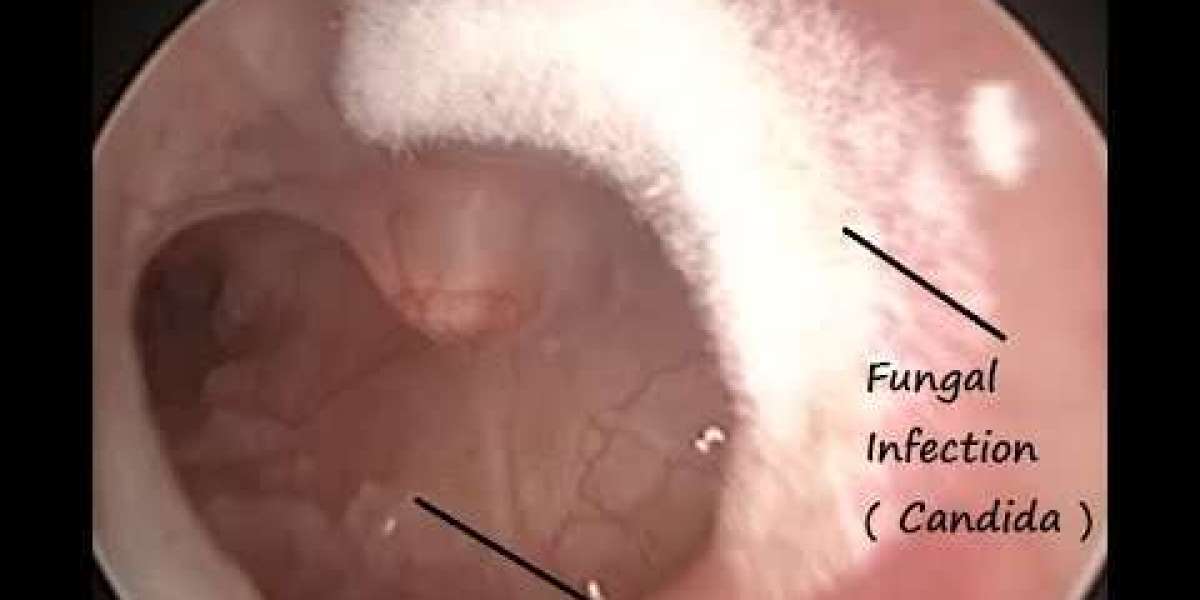Introduction toFungal ear infections, medically known as otomycosis, are a common yet often misunderstood condition. While bacterial ear infections typically receive more attention, fungal infections are equally significant and can cause considerable discomfort if left untreated. In this article, we will delve into the causes, symptoms, prevention, and treatment of fungal ear infections, offering a thorough understanding of this condition.
Causes of Fungal Ear Infections
Fungal ear infections are primarily caused by fungi such as Aspergillus and Candida. These fungi are naturally present in the environment, particularly in warm and humid conditions, which provide an ideal breeding ground for fungal growth. Several factors can increase the risk of developing a fungal ear infection:
Moisture in the Ear Canal: Excess moisture in the ear, whether from swimming, sweating, or humid weather, can create a favorable environment for fungal growth.
Prolonged Use of Ear Drops: Frequent or prolonged use of ear drops, especially those containing antibiotics or steroids, can disrupt the natural balance of flora in the ear, making it more susceptible to fungal infections.
Ear Trauma: Any injury or trauma to the ear canal, including from scratching or the use of cotton swabs, can damage the skin and make it easier for fungi to invade.
Weakened Immune System: Individuals with compromised immune systems, whether due to chronic illness, diabetes, or immunosuppressive medications, are at a higher risk of developing fungal ear infections.
Pre-existing Skin Conditions: Conditions such as eczema or psoriasis can cause the skin in the ear canal to become dry and flaky, increasing the likelihood of a fungal infection.
Symptoms of Fungal Ear Infections
Fungal ear infections can present with a range of symptoms, some of which may overlap with bacterial ear infections, making diagnosis challenging. Common symptoms include:
Itching: Persistent itching in the ear canal is one of the most common symptoms of a fungal ear infection.
Discharge: Fungal infections often cause a thick, white, yellow, or black discharge from the ear. The color and consistency of the discharge can vary depending on the type of fungus involved.
Ear Pain: While not as intense as bacterial infections, fungal ear infections can still cause significant discomfort or a feeling of fullness in the ear.
Hearing Loss: The accumulation of fungal debris and discharge can block the ear canal, leading to temporary hearing loss.
Tinnitus: Some individuals may experience ringing or buzzing sounds in the ear due to the infection.
Diagnosis of Fungal Ear Infections
Diagnosing a fungal ear infection typically involves a thorough examination by a healthcare professional. The following methods are commonly used:
Otoscopy: A doctor may use an otoscope to look inside the ear canal. Fungal infections often produce a characteristic appearance, such as a spongy texture or visible fungal spores.
Culture Tests: In some cases, a sample of the discharge may be taken and sent to a laboratory to identify the specific fungus responsible for the infection.
Microscopic Examination: A sample of the ear discharge may also be examined under a microscope to confirm the presence of fungal elements.
Treatment of Fungal Ear Infections
Effective treatment of fungal ear infections involves several approaches, often tailored to the severity of the infection:
Cleaning the Ear Canal: The first step in treating otomycosis is often to thoroughly clean the ear canal to remove any fungal debris, discharge, and dead skin. This process, known as debridement, can help relieve symptoms and improve the effectiveness of antifungal treatments.
Topical Antifungal Medications: These are the most common treatment for fungal ear infections. Antifungal ear drops or creams, such as clotrimazole, miconazole, or nystatin, are applied directly to the ear canal. The treatment duration can vary depending on the severity of the infection.
Oral Antifungal Medications: In more severe or persistent cases, oral antifungal medications may be prescribed. These are typically reserved for cases where topical treatments have not been effective or when the infection has spread beyond the ear canal.
Managing Underlying Conditions: Addressing any underlying factors, such as controlling diabetes, avoiding excessive moisture, or discontinuing the use of certain ear drops, is crucial to prevent recurrence.
Avoiding Further Irritation: It is essential to avoid inserting objects like cotton swabs into the ear canal during treatment, as this can exacerbate the infection and delay healing.
Prevention of Fungal Ear Infections
Preventing fungal ear infections involves a combination of good ear hygiene and lifestyle adjustments:
Keep Ears Dry: After swimming or bathing, ensure that your ears are thoroughly dried. Tilt your head to allow water to drain out, and use a clean towel to gently dry the outer ear.
Avoid Overuse of Ear Drops: Use ear drops only as prescribed by a healthcare professional, and avoid prolonged use of antibiotic or steroid drops.
Protect Your Ears in Humid Environments: If you are in a humid environment, consider using earplugs to keep moisture out of the ear canal.
Avoid Ear Trauma: Refrain from inserting objects into the ear canal, as this can damage the skin and increase the risk of infection.
Maintain Overall Health: A healthy immune system is your best defense against infections. Manage any chronic health conditions, and follow a balanced diet to support immune function.
When to See a Doctor
If you experience symptoms of a fungal ear infection, it is important to seek medical advice promptly. Early diagnosis and treatment can prevent complications and alleviate symptoms more quickly. Persistent or recurrent infections should also be evaluated by a healthcare professional to rule out any underlying issues.
Conclusion
Fungal ear infections, though often overlooked, are a significant health concern that requires prompt and effective treatment. By understanding the causes, symptoms, and treatment options, you can take proactive steps to protect your ear health and prevent future infections. Always consult with a healthcare professional if you suspect an ear infection, and follow their guidance for the best outcomes.







